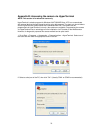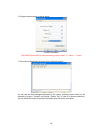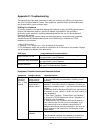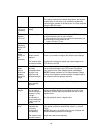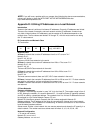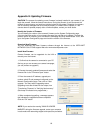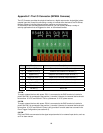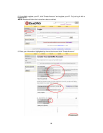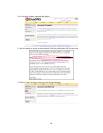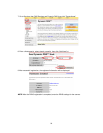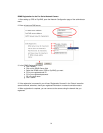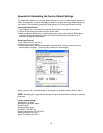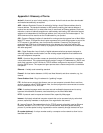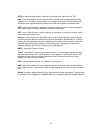
87
Appendix G: Dynamic Domain Name System (DDNS)
Your Internet service provider (ISP) provides you with at least one IP address that you use to
connect to the Internet. The address you get may be static, meaning it never changes, or
dynamic, meaning it’s likely to change periodically. Just how often it changes depends on your
ISP. A dynamic IP address complicates remote access since you may not know what your
current WAN IP address is when you want to access your network over the Internet. The
solution to the dynamic IP address problem comes in the form of a dynamic DNS service.
The Internet uses DNS servers to look up domain names and translates them into IP addresses.
Domain names, such as www.intellinet-network.com, are just easy-to-remember aliases for IP
addresses. A dynamic DNS service is unique because it provides a means of updating your IP
address so that your listing will remain current when your IP address changes.
There are several excellent DDNS services available on the Internet and, best of all, some of
them free to use. The INTELLINET NETWORK SOLUTIONS Network Cameras support the
DDNS service provided by www.DynDNS.org.
You’ll need to register with the service and set up the domain name of your choice to begin
using it. Please refer to the homepage or the service for detailed instructions.
A DDNS service works by uploading your WAN IP address to its servers periodically. Your
gateway/router may support DDNS directly, in which case you can enter your DDNS account
information into your router and it will update the DDNS servers automatically when your IP
address changes. Consult your router’s documentation for more information. If your router does
not support DDNS, you can run a small client utility on any PC on your network that will perform
the updating. The client utility is usually provided for free by the service. Check the service’s
Web page for further information, terms and conditions.
How to Use the DynDNS DDNS Server
1. Go to the DynDNS homepage (www.dyndns.org or www.dyndns.com).



